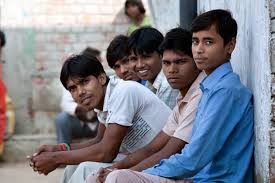
India Reaffirms Commitment to Adolescent Well-being with New Investment Report
India's Union Health Secretary Apurva Chandra, reaffirmed the nation's unwavering commitment to nurturing and empowering adolescents during the launch of the "Economic Case for Investment in the Well-being of Adolescents in India" report. The report, which builds on global findings from the Partnership for Maternal, Newborn & Child Health (PMNCH), underscores significant improvements in adolescent well-being and the government's extensive policies aimed at promoting health, education, and empowerment for this crucial demographic.
"India has the largest population of adolescents in the world, 253 million strong, and growing. Our adolescents are the backbone of our future, embodying the promise of a vibrant and progressive nation," said Chandra. He highlighted the importance of ensuring the health, education, and empowerment of adolescents to achieve national and international development goals, including the Sustainable Development Goals (SDGs).
India is the first country to launch the Rashtriya Kishor Swasthya Karyakram (RKSK), a dedicated program reaching out to all adolescents, with a special focus on marginalized and under-served groups. Additionally, initiatives such as the School Health and Wellness Programme under Ayushman Bharat and the Scheme for Promotion of Menstrual Hygiene aim to strengthen health promotion and disease prevention for school children and increase awareness and promote menstrual hygiene practices among adolescent girls.
Chandra announced the upcoming launch of the U-WIN platform, modeled after the successful Co-WIN platform, to digitize health records for children and improve monitoring and identification of health challenges.
Anandrao V. Patil, Additional Secretary of the Ministry of Education, highlighted increased budgetary allocations for school education and curriculum modifications to enhance skill development from the 6th grade onwards. He emphasized special efforts towards children with special needs, girl education, and mid-day meals for school children.
Commending India's initiatives, Shri Rajat Khosla, Executive Director of PMNCH, noted that adolescents face challenges such as violence and early pregnancies. He praised the Indian government's Rs. 2 lakh crore budgetary allocation for adolescent well-being in the Union Budget 2024-25, positioning India as a global leader in adolescent empowerment.
Dr. Rodrigo H. Ofrin, WHO Representative to India, emphasized the importance of investing in adolescents for the nation's future, noting that India's achievements in various health indicators and government scheme convergence further support adolescent well-being.
Prof. Bruce Rasmussen, Director of the Victoria Institute of Strategic Economic Studies, highlighted five domains of adolescent well-being and presented an analysis showing how government interventions in education, skill development, and reducing child marriage and road accidents can significantly boost GDP.
Dr. Yatan Pal Singh Balhara, Professor of Psychiatry at AIIMS New Delhi, and Dr. Reena Yadav, Director and HOD of Obstetrics and Gynecology at Lady Hardinge Medical College, stressed the need for mental health promotion and respecting adolescents' privacy in sexual and reproductive health counseling.
Youth Representative Ms. Priya Rathore from Rajasthan shared her experiences working with adolescent women facing challenges like child marriage and called for increased monitoring and evaluation of government support in rural and economically backward areas.
The launch of the "Economic Case for Investment in the Well-being of Adolescents in India" report marks a significant step in India’s ongoing efforts to ensure a brighter, inclusive future for its adolescent population.